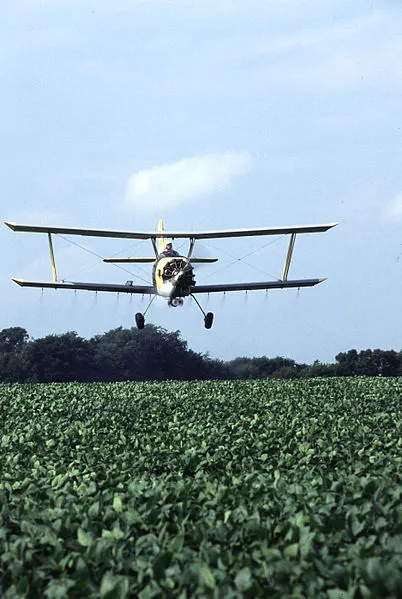The Risk of Drone Accidents
Drones are increasingly being used on farms to monitor crop development, water resources, and other areas of concern for farmers that otherwise took many hours of manpower to observe. This increased use, however, consequently increases the risk of a collision between drones and crop dusters.
How Drones are Being Used on Farms
Drones can be used on farms to survey crop development, a process previously done by walking fields, aircraft, and even satellite imagery. In these cases, drone flights will afford farmers far more accurate information.
Within California especially, drones may be used to monitor the location of water and the status of irrigation ponds and watering troughs. This application may especially be used in cattle and other livestock farming where watering troughs can be very far from other farm operations.
These uses and many potential others are driving a massive increase in the farming drone industry. With a current estimated worth of $500 million, according to an RnR market research study, the farming drone industry is estimated to increase to a $3.69 billion industry by 2022. Poor regulation, though, makes this increase hazardous to other farming aircraft.
Federal Regulations on Drone Flights
Drones and drone flight patterns are poorly regulated by the national, state, and local governments, although efforts are being made to resolve this deficiency. As of October 2016, most existing regulations issued by the Federal Aviation Administration (FAA) only apply to drones used recreationally.
Some local ordinances further restrict drone flight, but these are unlikely to apply to the unincorporated farming areas where many farming drones will be used. This leaves drones unimpeded in their operations and risk to low-flying aircraft.
Drones in Areas of Low-Flying Aircraft
Drones’ potential to thwart low-flying aircraft is an established problem in the firefighting industry. Air operations during the San Gabriel Complex Fire in June had to be suspended after drones were spotted in the area. A Foresthill man was arrested in July 2016 after flying a drone over the Trailhead Fire and thwarting air firefighting operations. This very dangerous problem even led to a California Department of Forestry and Fire Protection (CalFire) campaign to educate drone operators in California.
Drones in the farming industry may prove to be even more damaging to operations, and even lives, however. Crop dusters fly at an even lower altitude than firefighting aircraft and with even less defined flight paths. With drones and crop dusters both not defining flight patterns, the chance of a collision is high.
Sharing the Same Airspace
Despite the increased risk, the actual chance of a collision between a drone and crop-duster is decreased by a farmer’s typical knowledge of when his crops are going to be treated by a crop duster. This still leaves border areas of farms very dangerous to pilots as a drone-crop duster collision may cause the crop duster to crash as the aircraft pass into areas in which they are not scheduled to be.
A crop duster and a drone have not crashed yet. However, as the industry increases, so too does the risk to pilots and those around farms in the potential path of a crash.
Drone and Crop Duster Accident Attorneys
I’m Ed Smith, a Sacramento Drone/Crop Duster Crash Attorney. If you have suffered a serious injury due to the negligence of someone else, please call me at (800) 404-5400 for free and friendly advice.
If you are not located near my Sacramento Law Office, I have additional offices in Stockton and Elk Grove.
Member of the Million Dollar Advocates. Members of this association are well-respected trial attorneys with multiple million-dollar case settlements and verdicts.
See my track record of success on my Past Verdicts and Settlements webpage.
Learn what my clients and peers have to say about their experience working with me and my law staff on Yelp, Avvo, and Google.
:KW

